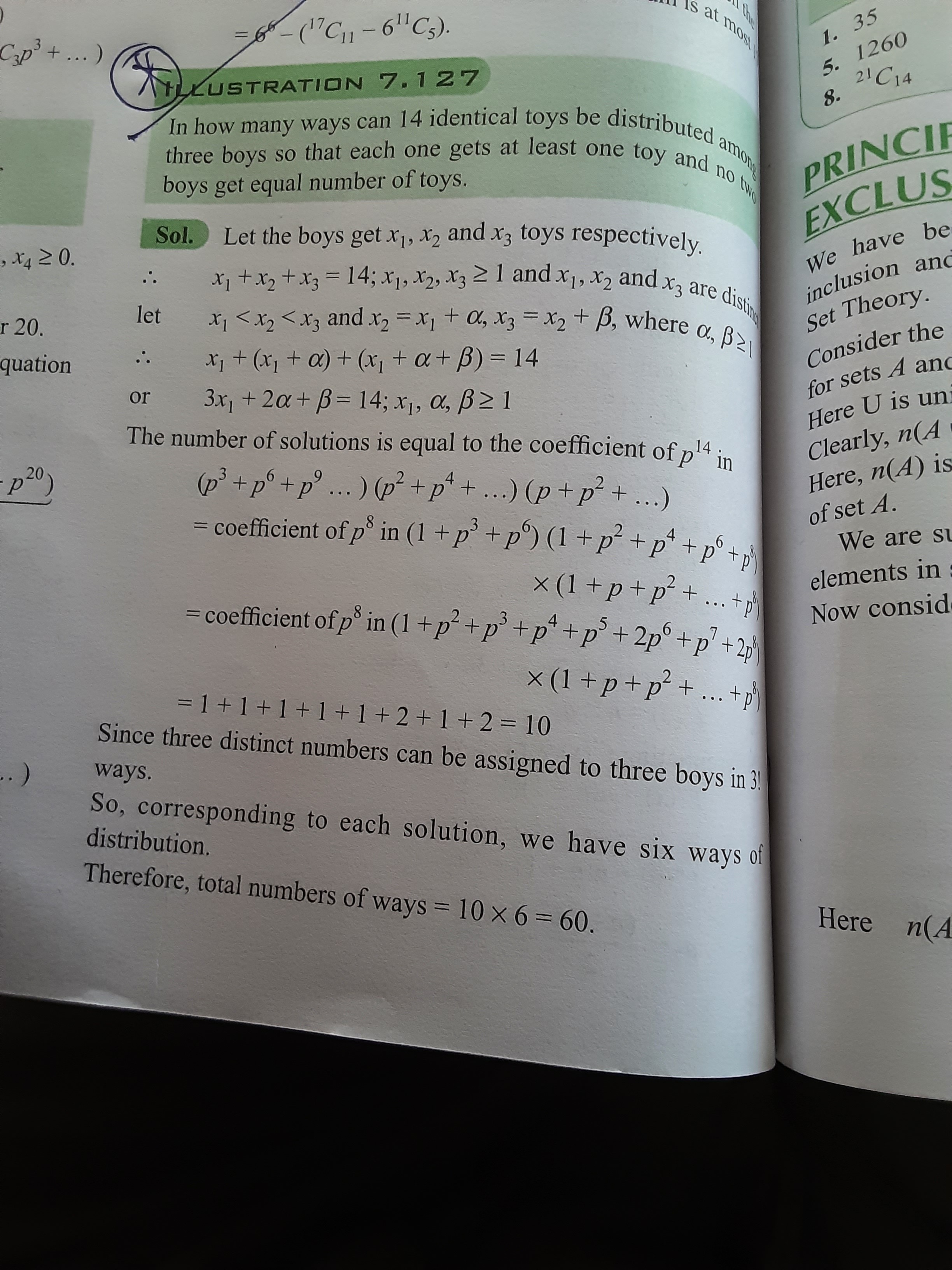Question
Question: = 66 - ($^{17}C_{11} - 6^{11}C_5$). ILLUSTRATION 7.127 In how many ways can 14 identical toys be d...
= 66 - (17C11−611C5).
ILLUSTRATION 7.127
In how many ways can 14 identical toys be distributed among three boys so that each one gets at least one toy and no two boys get equal number of toys.

-9538
Solution
The problem asks to evaluate the given expression: =66−(^{17}C_{11} - 6^{11}C_5$).
We need to calculate the values of the combination terms first. The formula for combinations is nCr=r!(n−r)!n!.
Step 1: Calculate 17C11. Using the property nCr=nCn−r, we have 17C11=17C17−11=17C6. 17C6=6!(17−6)!17!=6!11!17!=6×5×4×3×2×117×16×15×14×13×12 Simplify the expression: 17C6=17×416×5×315×114×113×6×2×112 17C6=17×4×1×14×13×1 17C6=68×182 17C6=12376
Step 2: Calculate 11C5. 11C5=5!(11−5)!11!=5!6!11!=5×4×3×2×111×10×9×8×7 Simplify the expression: 11C5=11×5×210×39×48×7 11C5=11×1×3×2×7 11C5=11×42 11C5=462
Step 3: Calculate 6×11C5. 6×462=2772
Step 4: Substitute the values back into the original expression. 66−(^{17}C_{11} - 6^{11}C_5)=66−(12376−2772) First, evaluate the term inside the parenthesis: 12376−2772=9604
Now, complete the final subtraction: 66−9604=−9538
The final value of the expression is -9538.
The illustration provided in the question text is unrelated to the calculation required.
